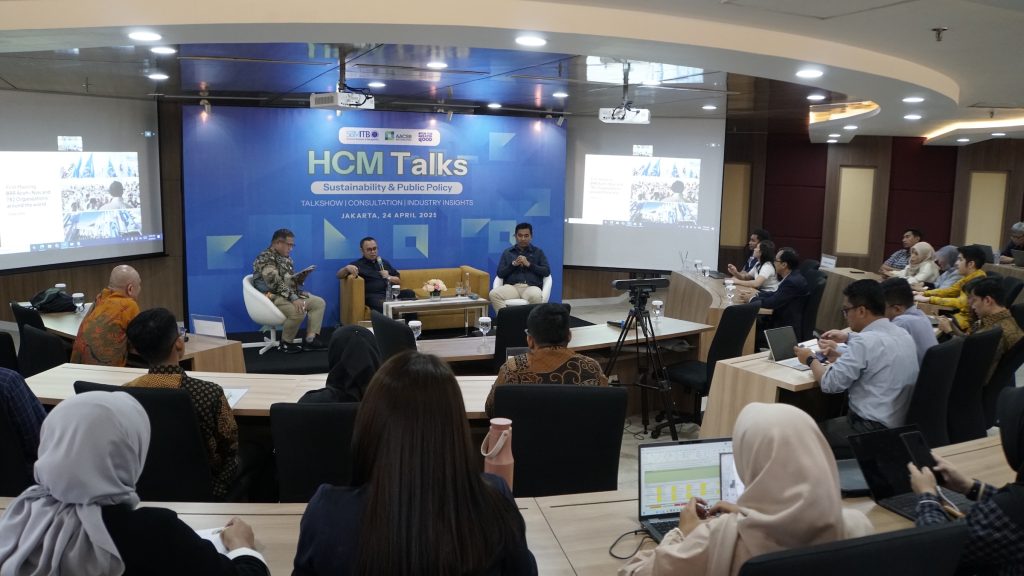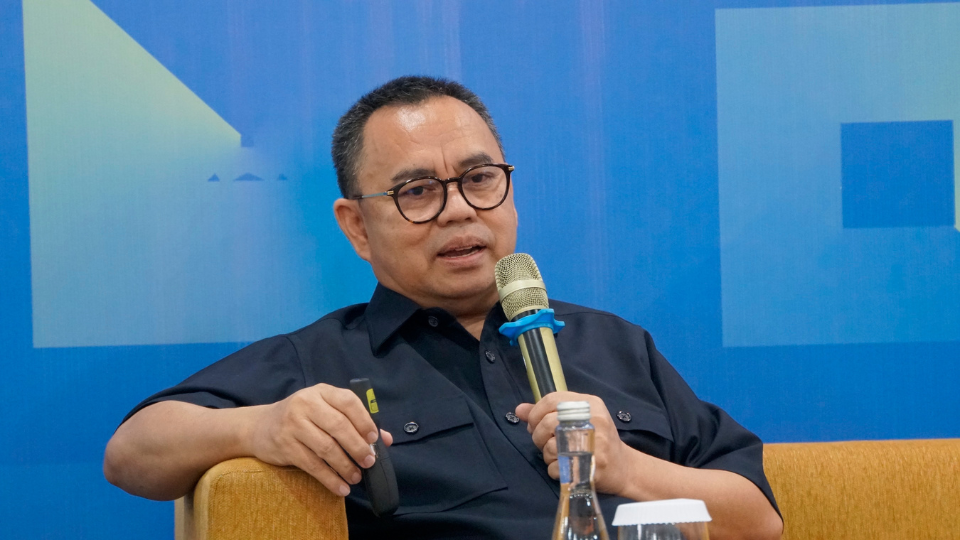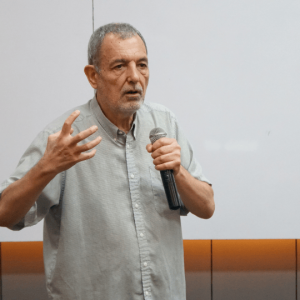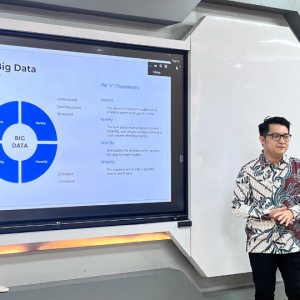Studies show that the more populist a government becomes, the harder it is to fulfill its promises. The true key to effective governance lies in sustainable collaboration among all citizens. This was the message delivered by Sudirman Said, Minister of Energy and Mineral Resources (2014–2016), during the Human Capital Management (HCM) Talks event hosted by the SBM ITB, at the Graha Irama Building, Jakarta (24/4).
In his address, Sudirman introduced the Fourth Sector Perspective. This approach highlights the role of market forces and private sector involvement aligned with social and environmental goals, while integrating the public and non-profit sectors to address urgent societal challenges. This framework underpins various initiatives such as social enterprises, public-private partnerships, and hybrid organizational models.
“Sustainability is not about ownership, but about the way we live. It is not about assets or capital, but about attitude, wisdom, and the perspective that drives our shared existence. Living together cannot be viewed from a single dimension, rather multidimensional,” said Sudirman, who currently serves as Head of the Harkat Negeri Institute, a cross-sector institution for leadership research, education, and regeneration.
Sudirman shared an inspiring example of collaboration through the story of Prof. Kuntoro Mangkusubroto, founder of SBM ITB, who led the rehabilitation and reconstruction of Aceh as Head of the BRR Aceh-Nias Agency in 2005 following one of the most devastating earthquakes in Indonesia’s history. Prof. Kuntoro, known for his collaborative leadership, successfully united government institutions, the military, NGOs, and national and international volunteers to restore the affected areas.
“Without a collaborative figure like Prof. Kun, the recovery atmosphere in Aceh would have been very different. That spirit of collaboration created momentum and became a significant milestone in Indonesia’s history,” Sudirman noted.
He also reflected on his time revitalizing the Ministry of Energy and Mineral Resources, where he established a Leadership Forum involving various stakeholders, including government bodies, private sector actors, research institutions, and universities. The forum fostered a constructive and open environment that encouraged joint efforts.
The forum led to many collaborative initiatives. Eventually, confidence within the ministry, consumer satisfaction, and public trust increased,” said Sudirman.
Concluding the session, Sudirman stressed the importance of institution-building, emphasizing the need for systems, policies, mindsets, and leadership rooted in collaborative values and sustainability. Through this foundation, he expressed hope that the nation’s ideals would emerge and flourish for the country’s greater good.






